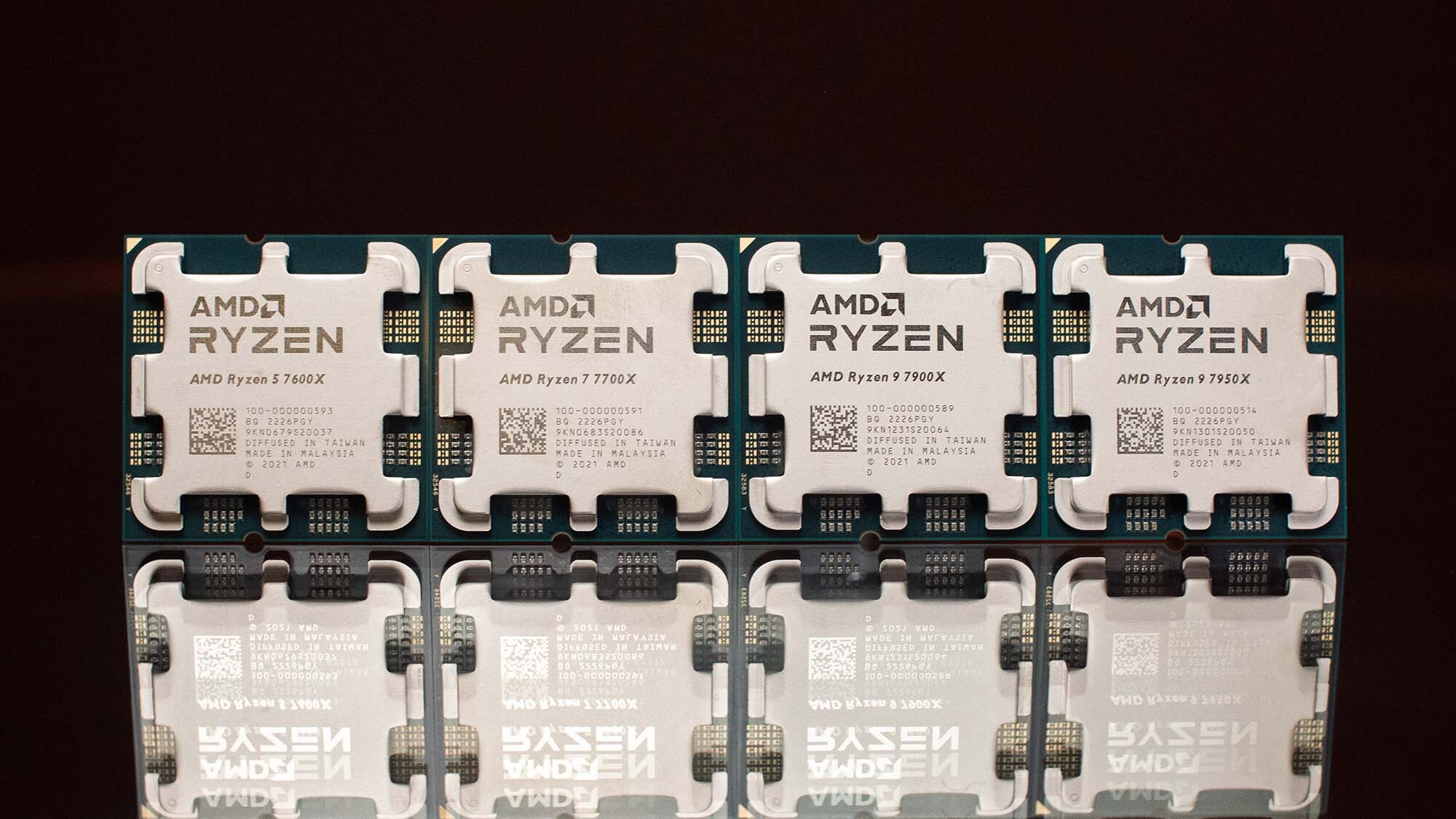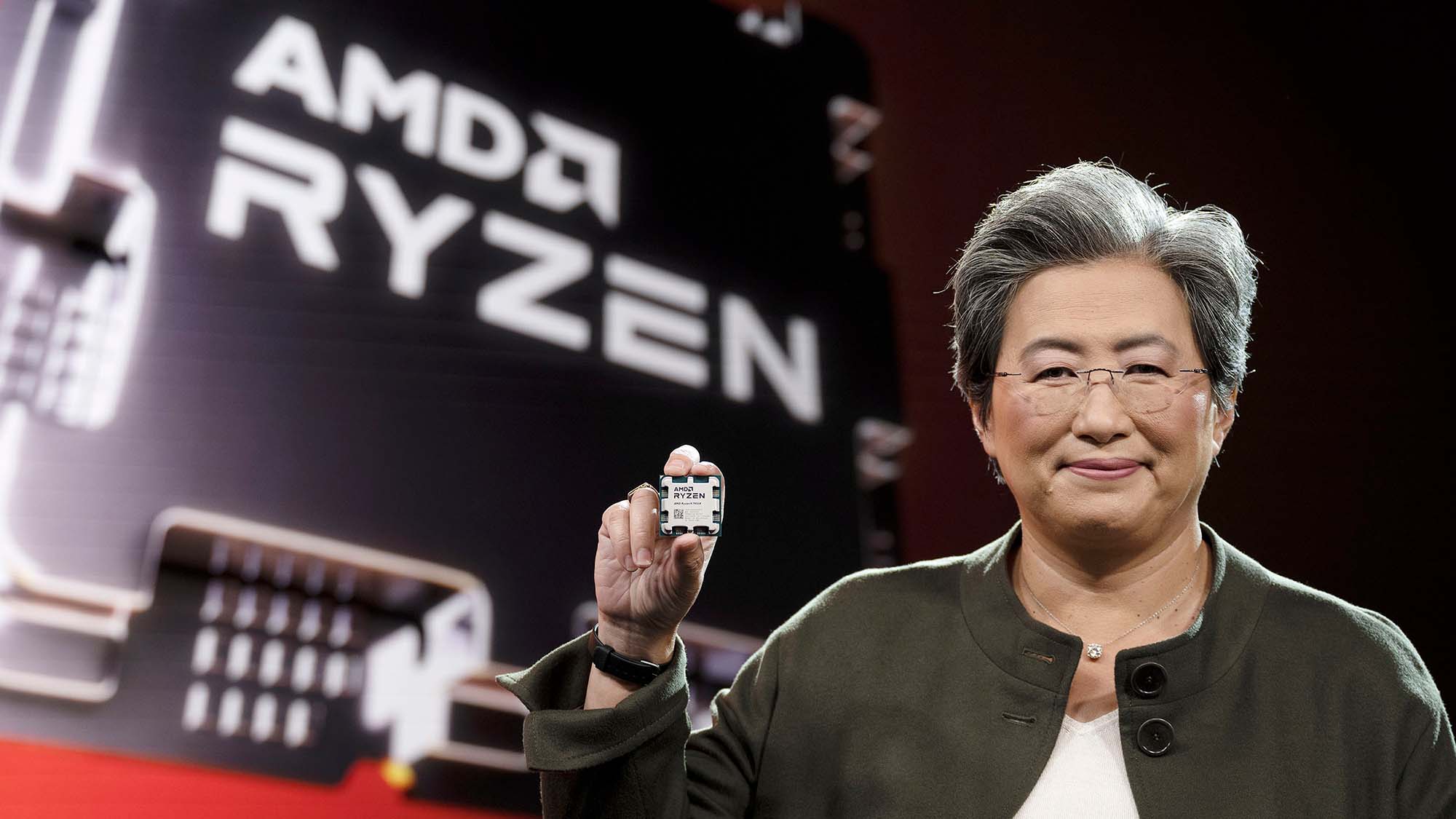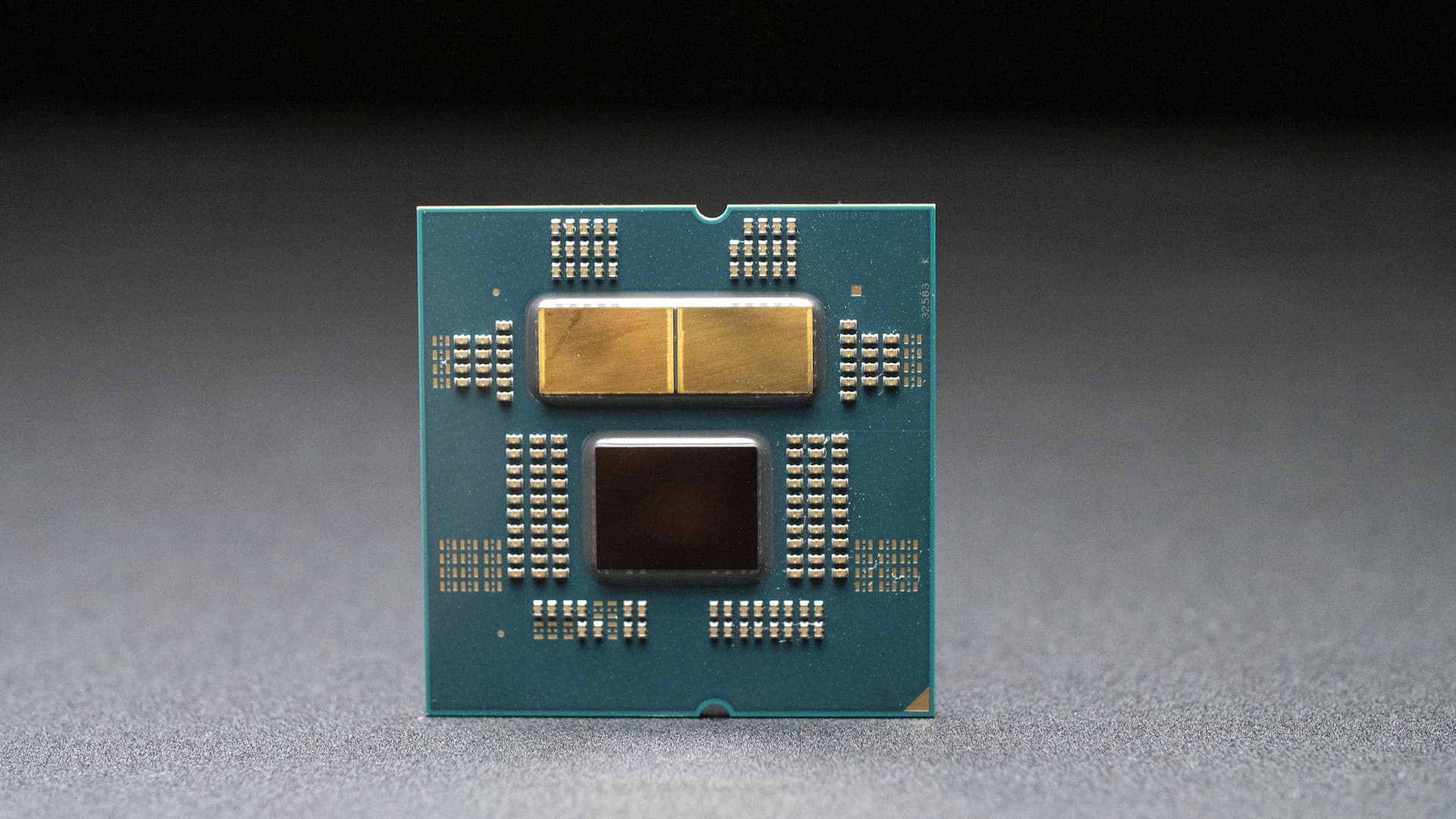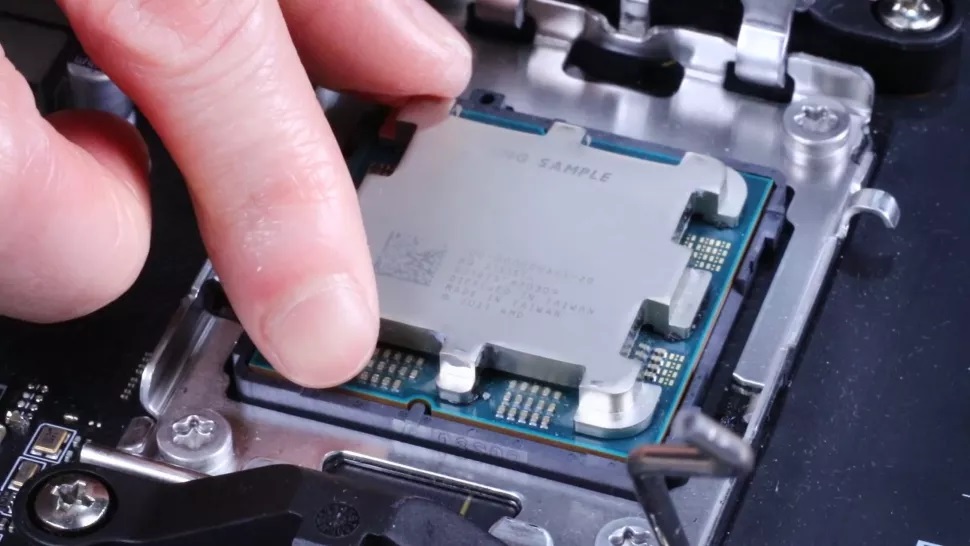AMD Ryzen 7000 series: everything we know about Team Red's latest CPUs
The AMD Ryzen 7000 series is here to challenge Intel's dominance

Sign up for breaking news, reviews, opinion, top tech deals, and more.
You are now subscribed
Your newsletter sign-up was successful
The AMD Ryzen 7000 series processors are here, and they are a major advance for Team read in the perpetual AMD vs Intel battle that's been raging for more than a decade.
Announced in August 2022, the initial launch lineup of the Ryzen 7000 series impressed us up and down the board, and for a brief moment, AMD laid claim to the title of best processor with its flagship Ryzen 7950X.
There have been some sore points though, as the cost to upgrade is atypically steep this generation due almost entirely to the jump to the new AM5 platform. This requires a few new hardware components beyond just the processor, much like Intel had to struggle with when it made the jump from Rocket Lake to Alder Lake late in 2021.
Still, despite all that, AMD's Ryzen 7000 series launch has been impressive so far, and we're anticipating some great things in the coming year from Team Red. So what is all the hubbub about with these new Zen 4 processors, and is it worth it to upgrade to the new chips or wait it out to see what's in store for 2023? We've got all the details about the best AMD processors going right now, and we're here to tell you everything you need to know about the AMD Ryzen 7000 series and what it means for you next rig.
AMD Ryzen 7000 Series: Cut to the chase
- What is it? AMD’s next-gen desktop processor series
- What will it cost? The Ryzen 5 7600x will be $299, Ryzen 7 7700x will be $399, Ryzen 9 7900x will be $549, and the Ryzen 9 7950x will be $699.
- When is it out? Announced at AMD's "together we advance_PCs" event on August 29, the chips will go on sale on September 27, 2022.
AMD Ryzen 7000 series: release date

The Ryzen 7000 series launched on September 27, 2022, with an initial launch lineup of the AMD Ryzen 5 7600X, AMD Ryzen 7 7700X, AMD Ryzen 9 7900X, and AMD Ryzen 9 7950X.
Noticeably absent were any 7000-series X3D chips, which will use AMD's latest vertical chip stacking tech, first demonstrated to great effect with the AMD Ryzen 7 5800X3D.
We expect that we'll see some of these chips announced early in 2023, and with CES 2023 right around the corner, we might not have too long to wait.
Sign up for breaking news, reviews, opinion, top tech deals, and more.
Considering that the Ryzen 7000-series chips we've seen so far all have integrated RDNA 2 GPUs, we don't expect to see a dedicated G-series lineup like we did with the last-gen Ryzen 5 5600G and Ryzen 7 5700G.
Whatever potential low-power or atypical SKUs we might get in 2023 (like an AMD gaming Chromebook CPU or something like that) remains to be seen as well, but it definitely can't be ruled out as the competition between AMD and Intel renews itself in the new year.
AMD Ryzen 7000 series: Specs

With the release of the initial lineup of AMD Ryzen 7000 series CPUs in September, we have a lot more concrete details about what this generation of processors are shaping up to be. So far, this is the spec breakdown on the available processors:
| Model | Cores/Threads | Clock (Base/Boost) | Cache (L2 + L3) | TDP | Price |
|---|---|---|---|---|---|
| Ryzen 5 7600X | 6 / 12 | 4.7GHz / 5.3GHz | 38MB | 105W | $299 |
| Ryzen 7 7700X | 8 / 16 | 4.5GHz / 5.4GHz | 40MB | 105W | $399 |
| Ryzen 9 7900X | 12 / 24 | 5.6GHz / 4.7GHz | 76MB | 170W | $549 |
| Ryzen 9 7950X | 16 / 32 | 4.5GHz / 5.7GHz | 80MB | 170W | $699 |
We don't know where things stand with any potenital Ryzen 7000-series processors with 3D V-Cache, but the 5800X3D packed in 100MB of cache onto the chip, making it a beast of a chip for gaming, especially at lower resolutions where the extra cache is able to pack in even more gaming assets and instructions than the mainstream chips.
AMD Ryzen 7000 series: Performance

The biggest improvement to performance between the Zen 3 and Zen 4 chips is the latter’s use of the 5nm process. This upgrade will result in a 1.87x transistor density improvement over the TSMC 7nm process used by the AMD Ryzen 5000-series. But while the density might have nearly doubled, that doesn't actually translate to double the performance (though that would be nice!).
The Ryzen 9 7950 has a total of 16 full-performance cores with a base clock of 4.5 GHz and a boost clock of 5.7 GHz. This makes it an almost 40% faster base clock compared to the Core i9-12900K's performance cores, and a 12% faster boost clock. Compared to the Ryzen 9 5950X, the 7950X's base clock runs about 32% faster, and the boost clock is about 16% faster.
In terms of benchmark performance, the CineBench R23 multi-core score was a whopping 38,531, a 52% increase over the Ryzen 9 5950X's score of 25,347. Meanwhile, the GeekBench 5 multi-core score of 22,167 is a massive 60% increase over the Ryzen 9 5950X's 13,975.
The Ryzen 9 7950X also outperforms the Ryzen 9 5950X by about 35% on average across the Adobe Photoshop, Adobe Premiere Pro, Handbrake, and Blender benchmarks.
There's no getting around the fact though that if you're looking at raw performance, the Intel Raptor Lake processors released in October 2022 are the clear winner, with the Intel Core i9-13900K scoring over 40,000 points in CineBench R23 while keeping the chip's price lower than the Ryzen 9 7950X, forcing AMD to drop its prices recently.

John (He/Him) is the Components Editor here at TechRadar and he is also a programmer, gamer, activist, and Brooklyn College alum currently living in Brooklyn, NY.
Named by the CTA as a CES 2020 Media Trailblazer for his science and technology reporting, John specializes in all areas of computer science, including industry news, hardware reviews, PC gaming, as well as general science writing and the social impact of the tech industry.
You can find him online on Bluesky @johnloeffler.bsky.social
- Allisa JamesComputing Staff Writer